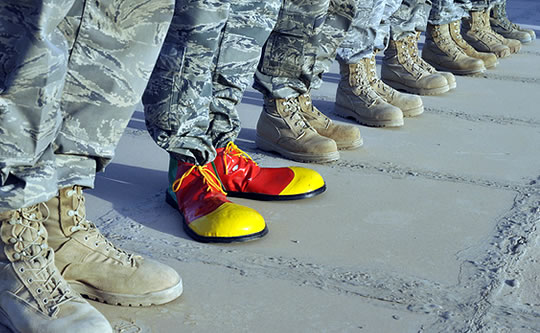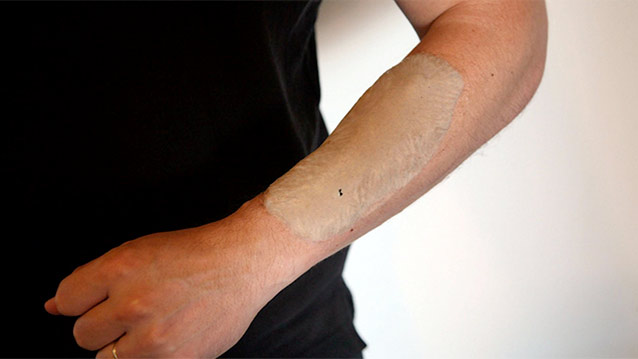Sermon preached by Pastor Carter Conlon of Times Square Church. For more information visit http://www.tscnyc.org/ I encourage you brethren to listen and understand this powerful sermon it will benefit your life. God bless you
And they overcame him by the Blood of the Lamb, and by the word of their testimony, and they loved not their lives unto death. (Rev. 12:11) Watch, and pray
Oct 20, 2014
The Last Gospel Message To An Ungodly World by Carter Conlon
Sermon preached by Pastor Carter Conlon of Times Square Church. For more information visit http://www.tscnyc.org/ I encourage you brethren to listen and understand this powerful sermon it will benefit your life. God bless you
Proof The Lunar Wave Is Not Equipment Related
Lots of interest in this....very unusual phenomenon that has been telescopically captured from both the U.S. and Germany...it would seem the easiest answer to the effect, is that some advanced technology, likely private multi-national corporations and/or advanced military technology is behind this. Why? That's a good question...
This clip proves beyond doubt that the lunar wave is in no way caused by the camera. I ask that no "equipment as the cause" comments are made on this clip as the purpose and intent of this clip is to allow folks to explore what the wave means - and to hopefully find others who have filmed this event. I consider this clip to be the most important I have filmed to date and look forward to meaningful discussion without having anybody shouted down.
T-shirts: http://www.cafepress.com/crrow777
https://www.facebook.com/crrow.triple...
If you would like to support the Crrow Discovery Project, please use the PayPal link below:
Donate: https://www.paypal.com/cgi-bin/webscr...
A Message of Hope : In These Last Days
http://www.blueletterbible.org/
FAIR USE NOTICE: This video may contain copyrighted material. Such material is made available for educational purposes only. This constitutes a 'fair use' of any such copyrighted material as provided for in Title 17 U.S.C. section 106A-117 of the U.S. Copyright Law.
Hurricane Gonzalo hit by Microwave Pulse "anomaly" -- Weather Modification 101
Full website post with the links and animated .gif images from the CIMSS MIMIC TC / TPW:
http://dutchsinse.com/10182014-hurric...
tc
Hurricane Gonzalo just hit Bermuda, their first direct Hurricane hit since 1922.
As it turns out, the storm was pulsed by a "microwave anomaly" off the Eastern shores of Florida , just before it made its path Northward towards Bermuda -- which in turn took a direct hit.
Sound familiar? If you've been paying attention since 2011, this is the THIRD HURRICANE to receive such a pulse seen on the Microwave Background Imagery.
Previous storms, Hurricane Sandy "frankenstorm" + Hurricane Irene BOTH experienced microwave pulse anomalies off the Eastern shores of Florida near the Caribbean.
The chances of THREE Hurricanes in a row ALL receiving a "microwave anomaly" in the same relative location, 3 years apart -- the "anomaly" ceases to be a coincidence, and surely appears to be man made weather modification being done real time using Microwave frequencies.
Improve your mood by changing the way you walk

It’s well-known that when we’re in a good mood, our style of walking tends to reflect how we feel: we bounce along, shoulders back, swinging our arms in style.
Now, a new study finds that it also works the other way around: people who imitate a happy style of walking, even without realising it, find themselves feeling happier (Michalak et al., 2015).
The study had participants walking on a treadmill after looking at a list of positive and negative words.
While on the treadmill each person’s gait and posture was continuously measured and fed back to them visually.
On the screen they had to try and move a bar either one way or the other by changing their walking style.
Although they didn’t realise it, walking in a happy way made the bar move in one direction and walking in a depressed way moved it the other.
Read the rest of this article at - http://www.spring.org.uk/2014/10/how-to-feel-happy-just-by-walking-differently.php?utm_source=feedburner&utm_medium=feed&utm_campaign=Feed%3A+PsychologyBlog+%28PsyBlog%29
Labels:
Healthy Stuff
In Remembrance of "Dear Doctor Luke."

Did Paul owe his life to Luke? If so, we owe Luke our thanks, because it was Paul who wrote most of the New Testament letters and who evangelized the west.
Luke is special. Not only was he the only Gentile (non-Jew) to write books of the Bible, he was a close companion of Paul. If Paul succeeded in evangelizing the western Roman empire, Luke may have had more to do with it than we know. It is likely that God used his medical skills to keep Paul alive some of those times when he was beaten, stoned or half-drowned.
Luke is special, too, because he is the first Christian physician on record. Untold thousands have followed in his steps. Physicians can look to Luke as an example. But so can historians, because his writings are very much in the Greek tradition. Painters claim him for their brotherhood, too, because tradition holds he painted a picture of the Blessed Virgin which hung in the Santa Maria Maggiore in Rome.
As a physician, Luke must have been curious about the medical conditions behind Christ's miracles. As a matter of fact, Luke uses more medical terms than any other New Testament writer. For example, he doesn't just say Publius' father was sick: he tells us he suffered from fever and dysentery. The apostle Paul told us that Luke was a doctor. In fact, he called him "dear doctor Luke." Given his use of medical detail in the two books he wrote for the Bible, The Gospel According to Luke and The Acts of the Apostles, we might have guessed it ourselves.
Luke pulled back the curtain on the young Jesus more than any other gospel writer. Without him we would know nothing about the boy Jesus's thinking. It is a pretty safe bet that Luke interviewed Mary and got most of the details from her. Perhaps he even heard the Magnificat, recorded in his gospel alone, from her very own lips. This day, October 18, is the great doctor's feast day in churches that observe such traditions.
Bibliography:
- Aland, Kurt. Saints and Sinners; men and ideas in the early church. Philadelphia: Fortress Press, 1970.
- Aspland, Alfred. The Four Evangelists. Manchester: The Holbien Society, 1873.
- Barclay, William. The Gospel of Luke. Philadelphia: Westminster, 1975.
- Butler, Alban. Lives of the Saints. New York: Kennedy, ca. 1956.
- The New Catholic Encyclopedia. New York: McGraw-Hill, 1967.
- Fitzmeyer, Joseph A. The Gospel According to Luke. Anchor Bible. Garden City, New York:Doubleday and Co., 1986.
- Munck, Johannes. The Acts of the Apostles. Anchor Bible. Garden City, New York: Doubleday and Co., 1986.
- Rohrbach, Paul. Armenmien. Englehorn, 1919. Source of the image.
- Tenney, Merrill C., gen. ed. Pictorial Bible Dictionary. Nashville: Southwestern Company, 1972.
- Ramsay, W. M. Luke the Physician and Other Studies in the History of Religion. Grand Rapids, Michigan: Baker, 1956.
- Scott, John A. Luke; Greek Physician and Historian. Evanston, Illinois: Northwestern University, 1930.
- Walsh, James A. "St. Luke the Physician," appendix to Old Time Makers of Medicine. New York: Fordham University Press, 1911.
Nine creepy Orwellian technologies that will soon be inside you...
By Mike Edelhart Yahoo US

9 real technologies that will soon be inside you
Wearables will have their moment in the sun, but they're simply a transition technology.
Technology will move from existing outside our bodies to residing inside us.
That's the next big frontier.
Here are nine signs that implantable tech is here now, growing rapidly, and that it will be part of your life (and your body) in the near future.
1. Implantable smartphones

That's already starting to happen.
Last year, for instance, artist Anthony Antonellis had an RFID chip embedded in his arm that could store and transfer art to his handheld smartphone.
Researchers are experimenting with embedded sensors that turn human bone into living speakers.
Other scientists are working on eye implants that let an image be captured with a blink and transmitted to any local storage (such as that arm-borne RFID chip).
But what takes the place of the screen if the phone is inside you? Techs at Autodesk are experimenting with a system that can display images through artificial skin.
Or the images may appear in your eye implants.
2. Healing chips

A new bionic pancreas being tested at America’s Boston University, for instance, has a tiny sensor on an implantable needle that talks directly to a smartphone app to monitor blood-sugar levels for diabetics.
Scientists in London are developing swallowable capsule-sized circuits that monitor fat levels in obese patients and generate genetic material that makes them feel "full".
It has potential as an alternative to current surgery or other invasive ways to handle gross obesity.
Dozens of other medical issues from heart murmurs to anxiety have implant/phone initiatives under way.
3. Cyber pills that talk to your doctor

In a project named Proteus, after the eensy body-navigating vessel in the film Fantastic Voyage, a British research team is developing cyber-pills with microprocessors in them that can text doctors directly from inside your body.
The pills can share (literally) inside info to help doctors know if you are taking your medication properly and if it is having the desired effect.
Read the rest of this article at - https://au.news.yahoo.com/technology/a/25293925/nine-real-technologies-that-will-soon-be-inside-you/

Given the frenzy of interest following the announcement of the Apple Watch, you might think wearables will be the next really important shift in technology.
Not so.Wearables will have their moment in the sun, but they're simply a transition technology.
Technology will move from existing outside our bodies to residing inside us.
That's the next big frontier.
Here are nine signs that implantable tech is here now, growing rapidly, and that it will be part of your life (and your body) in the near future.
1. Implantable smartphones

That's already starting to happen.
Last year, for instance, artist Anthony Antonellis had an RFID chip embedded in his arm that could store and transfer art to his handheld smartphone.
Researchers are experimenting with embedded sensors that turn human bone into living speakers.
Other scientists are working on eye implants that let an image be captured with a blink and transmitted to any local storage (such as that arm-borne RFID chip).
But what takes the place of the screen if the phone is inside you? Techs at Autodesk are experimenting with a system that can display images through artificial skin.
Or the images may appear in your eye implants.
2. Healing chips

A new bionic pancreas being tested at America’s Boston University, for instance, has a tiny sensor on an implantable needle that talks directly to a smartphone app to monitor blood-sugar levels for diabetics.
Scientists in London are developing swallowable capsule-sized circuits that monitor fat levels in obese patients and generate genetic material that makes them feel "full".
It has potential as an alternative to current surgery or other invasive ways to handle gross obesity.
Dozens of other medical issues from heart murmurs to anxiety have implant/phone initiatives under way.
3. Cyber pills that talk to your doctor

In a project named Proteus, after the eensy body-navigating vessel in the film Fantastic Voyage, a British research team is developing cyber-pills with microprocessors in them that can text doctors directly from inside your body.
The pills can share (literally) inside info to help doctors know if you are taking your medication properly and if it is having the desired effect.
Read the rest of this article at - https://au.news.yahoo.com/technology/a/25293925/nine-real-technologies-that-will-soon-be-inside-you/
Pakistan Court Upholds Death Sentence Against Christian Woman Who Allegedly Drank Water From a Well Reserved for Muslims

A Christian woman who was given the death penalty last year for drinking water from a well reserved for Muslims in Pakistan has had her appeal against the sentence rejected by the Lahore high court.
by, Oliver Lane | Breitbart | h/t Mark BroadbentBreitbart reported on the original case last year, which arose after Aasiya Noreen, a fruit picker, stopped to refresh herself during the course of her day’s work. After she was caught drinking from the same cup used by Muslim women, the well was declared “Haram”, and Noreen was beaten for the offence, before being arrested.
At the time of her conviction, Noreen said: “I have been sentenced to death because I was thirsty. I’m a prisoner because I used the same cup as those Muslim women, because water served by a Christian woman was regarded as unclean by my stupid fellow fruit pickers”.
It was alleged during the altercation following the water incident, Noreen made negative comments about Islam. Noreen has defended her innocence in the five years since, insisting her comment went no further than “I think Jesus would see things differently than Mohammed”, and her lawyer has argued the charge arose because of “personal enmity” towards the defendant, rather than a genuine grievance, reports the Independentnewspaper.
None of the original witnesses were present in court to testify, but a Muslim “prayer leader” (Imam) who claimed Noreen, an unrepentant Christian, had confessed the crime to him, did. When the Lahore court delivered its verdict to maintain the death penalty in this case, Noreen and her defence team reacted with shock. Her lawyer promised to keep fighting: “I was expecting the opposite decision. We will file an appeal to the Supreme Court of Pakistan in a few days”.
Read this article at - http://shariaunveiled.wordpress.com/2014/10/19/pakistan-court-upholds-death-sentence-against-christian-woman-who-allegedly-drank-water-from-a-well-reserved-for-muslims/
Redeemed Unredeemable - When America's Most Notorious Criminals Came Face to Face with God
By Thomas R. Horn and Donna Howell
 In February 2014, a ten-year-old girl from Springfield, Missouri (within an hour’s drive from Defender Publishing), was kidnapped, raped, and murdered, allegedly by her school sports coach. In spite of several eyewitnesses at the site of the abduction and a long list of mounting evidence (including the body) found at this man’s home only hours after the child was publicly taken from the street, this man is currently awaiting trial with a not-guilty plea. Immediately following the announcement of the girl’s death, a candlelight vigil was held in her memory. Several staff members of Defender Publishing attended this vigil.
In February 2014, a ten-year-old girl from Springfield, Missouri (within an hour’s drive from Defender Publishing), was kidnapped, raped, and murdered, allegedly by her school sports coach. In spite of several eyewitnesses at the site of the abduction and a long list of mounting evidence (including the body) found at this man’s home only hours after the child was publicly taken from the street, this man is currently awaiting trial with a not-guilty plea. Immediately following the announcement of the girl’s death, a candlelight vigil was held in her memory. Several staff members of Defender Publishing attended this vigil.
The Candlelight Vigil
FORGIVABLE?
 We, as people and as victims of others’ selfishness, may never find the strength to forgive some acts against humanity.
We, as people and as victims of others’ selfishness, may never find the strength to forgive some acts against humanity.
PART ONE
When Forgiveness Seems Impossible
|
| s |
The new investigative book Redeemed Unredeemable was being written at that time.
The Candlelight Vigil
Approximately ten thousand people marched at eight o’clock that night. The city of Springfield closed a number of high-traffic roads and coned off many popular alleyways as the crowds pushed in closer around the family in support of this young girl. Scores of those attending were wearing shirts that said, “[Victim’s name] has left her footprint for the world to see.” Every kind of personality, ethnicity, and community group was present and unified under one common moral law; the crowd included conservative and religious families with kids, homosexual couples, the elderly, men, women, children, gothic teens, rough and muscular motorcyclists, city officials, court officials, members of law enforcement, close family members, and friends of the victim, as well as those who had never heard of the girl prior to her murder.
As the march began, everyone lined up along the sides of the street held their candles high, respectfully allowing the victim’s family to pass to the front, some straining to catch a glimpse of the young girl’s mother, who led the march, others standing still with heads bowed in prayer. The victim’s mother did not cry, nor did she make eye contact with anyone. In a sort of mechanical or survival mode, she simply kept her legs moving, an odd expression on her face revealing devastation edged with a contrasting refusal of defeat. The sniffles of thousands echoed off the quiet buildings along the usually bustling streets. Then, from somewhere in the back of the group, a single, brave voice rose in the silence: “This little light of mine, I’m gonna let it shine, let it shine, let it shine, let it shine…” The air was emotionally charged as an unspoken determination to remember the girl the way she was in her innocence swept over everyone present. Voices joined in the singing. Candles flickered. Grown men cried.
Slowly, the people made their way down the street. Apartments, homes, and places of business were filled with onlookers sitting or leaning out of their windows, the lights from the rooms behind them extinguished reverently, their handheld candles swaying with the song. Suddenly, bursts of wild cheering that can only be described as an uplifting excitement dominated the march from one side. As heads turned to find the source of the curious enthusiasm, handmade cardboard signs were hoisted high: “Let him hang!” “We need harsher punishments for crimes against women and children!” Amidst this group was one man who was quickly identified in the waves of whispers preceding his position in the march. It was the prosecuting attorney, a man who had been on the news earlier that day stating that the victim’s legal team planned to seek the death penalty. Although the multitudes continued to sing “Let It Shine” until they reached the end of the road, spontaneous chanting of the victim’s name rose and quieted in response to signs, shouted statements, or relatives of the victim who inspired a more passionate, eager, and fervent reaction from those who came in support.
Our staff, who have since agreed that one sound from our throats would have uncorked a cascade of choking sobs, marched in silence, unable to sing or chant or cheer while our tears remained concealed only by the sheer force of our will. When the crowds reached the final cross street of the march, everyone grew quiet as one girl stood and sang “Amazing Grace.” The candles were raised again until the hymn was completed. Then, everyone was asked to take a moment of silence. The silence increased into around a full minute as many bowed their heads, lifting up unspoken prayers to whatever higher power they believed in.
Immediately afterward, members of the local motorcycle community offered to give rides for a small fee to raise money for the victim’s family. Attention turned to the tattooed and bandana-adorned men and women, as they regarded those around them softly and soberly, revving their engines. Candles from almost ten thousand hands were then blown out, the waxy smell permeating our senses, and the smoky haze lifting into the light of the streetlamps, wordlessly announcing the end of the march.
Though there were thousands of footsteps on the ground—and shortly thereafter, the thousands of vehicles were starting all at once across the city—few voices could be heard as the masses headed to leave. It was only after our staff was a mile or so away from the event that we could take a deep breath and gather ourselves. We will never forget that night.
 |
One of many aerial shots taken by the present news crews the night of the candlelight vigil
|
s
FORGIVABLE?
The issue with criminals giving their hearts to the Lord post-crime and post-incarceration, at least in the minds of most, is the underlying question of whether their conversion can possibly be sincere. Ultimately, of course, that question can only be answered by God. Despite this, many on the outside do hear the stories of these transformations and cast their opinions immediately—without knowing, or even wanting to know, all the details.
The crowds at that candlelight vigil were angry, and to say that they had every right to be angry is the understatement of the century. Anger is a powerful force of human nature, and though it is often destructive, there are times, such as when someone is murdered, when the emotion can inspire change or action toward good. In these cases, anger is even encouraged by many. One might say that we should all be angry when the life of an innocent person is taken for such detestable and selfish gains. (Based on our conversations on the ride home, we at Defender Publishing are also incredibly angry at the person who did this to that little girl.) Without passionate, righteous anger against violent crime, we would have no justice system, for the very meaning of justice is rendered void by the absence of the passion that drives it.
However, God in His seat on high doesn’t follow the same justice system or emotional patterns as we do. The Bible is clear that He does feel emotion, including anger, and when He walked the earth as a Man, He certainly felt human emotions. According to Scripture, He feels compassion (Psalms 135:14; Judges 2:18; Deuteronomy 32:36), grief (Genesis 6:6; Psalms 78:40; Isaiah 66:10), love (1 John 4:8; John 3:16; Jeremiah 31:3), hate (Proverbs 6:16), jealousy (Exodus 20:5; Exodus 34:14; Joshua 24:19), joy (Zephaniah 3:17; Isaiah 62:5; Jeremiah 32:41), and yes, anger (Psalms 7:11; Deuteronomy 9:22; Romans 1:18). But where God trumps our finiteness is when the balance of anger versus forgiveness comes into the equation; He has the ability to feel several emotions for every person at once as it is deemed divinely appropriate to Him. His emotions are never limited to our predetermined, fragmented, human expectations. He does not experience “mood swings on high.” He is emotion, and it is only by our humanness corrupting His ultimate design that we move so quickly from one emotion to another or stay longer than we should on a single emotion, never fully understanding His perfect balance of emotions (anger and love) with their corresponding or opposing actions (wrath or forgiveness).
 We, as people and as victims of others’ selfishness, may never find the strength to forgive some acts against humanity.
We, as people and as victims of others’ selfishness, may never find the strength to forgive some acts against humanity.
The same cannot be said of God.
Can God forgive even the sins of one as terrible as the man who murdered that little girl? What about others like Ted Bundy or David Berkowitz?
This brings us to an issue that will be addressed once, early on: It is NOT necessarily the opinion of this author that all of the criminals whose stories are included in Redeemed Unredeemable are completely sincere and will therefore spend eternity with God; it is NOT necessarily the opinion of this author that these criminals are insincere and will therefore spend eternity in hell. It is only the opinion of this author that the Bible clearly says that all sins are forgivable (except for two: blasphemy of the Spirit [Matthew 12:31; Mark 3:29] and those who take the mark of the beast [Revelation 14:9]).
Read the rest of this article at - http://www.raidersnewsupdate.com/Redeemed1.htm
Subscribe to:
Comments (Atom)